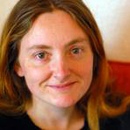Advisory Board and Editors Biochemistry

Ebba Brakenhielm
INSERM Tenured Researcher in the field of Cardiovascular Research, currently focusing on therapeutic angiogenesis with polymer-based targeted growth factor delivery.
PhD in Tumor Biology (Pr Yihai Cao, Karolinska Institutet, Sweden), and expertise in Adipose tissue angiogenesis. Postdoc at UCLA (Pr Lily Wu) in molecular imaging and tumor lymphangiogenesis field.
Member of European Vascular Biology Organisation, French society for Cardiovascular Research, French society for Angiogenesis Research.

Paul S. Brookes
Professor of Anesthesiology at University of Rochester Medical Center. PhD in Biochemistry from Cambridge University (UK) and post-doctoral training at the University of Alabama at Birmingham. Research program in mitochondria, cardiac ischemia, and cardioprotective therapies.

Sarah J Butcher
Sarah Butcher did her PhD in EMBL Heidelberg, mentored by Stephen Fuller and Helen Saibil, she carried out postdoctoral training in the MRC Virology Unit in Glasgow, before moving to Helsinki University where she is currently Programme Director of the Structural Biology and Biophysics Programme, Institute of Biotechnology, Head of Instruct-FI National Affiliate Center, Finland & Head of National cryoEM facility. She works on macromolecular structure and assembly, especially of viruses.

Jesús Campos-García
PhD. Jesús Campos-García.
Professor-Researcher of Microbial Biotechnology Laboratory since 2003, at the Research Institute of Biological Chemistry of the Universidad Michoacana de San Nicolás de Hidalgo, México. He has authored over 80 papers in indexed and peer-reviewed journals. He was the recipient of the National Award for Young Researchers in 2008, for the Mexican Academy of Science. He possesses four Patents and several Technological processes transferred into the Industry.
Research areas are related to the study of the mechanisms of interaction of microorganisms such as Pseudomonas aeruginosa with the environment: mechanisms of organic compounds degradation, heavy metals resistance, host-pathogen interaction, microbial nano-bioactive metabolites, and genetic modification of industrial GEMs used for alcoholic fermentation and biofuels.
Awards
•National Award for Young Researchers in 2008, for the Mexican Academy of Science.
•State Award of Scientific Research in 2009, Michoacán State Government, México.
•Grant Marcos Moshinsky 2013-2014, Chemistry-Biological Sciences. Marcos Moshinsky Funding, México.
•Weizmann Award 2015, Nature Science. Mexican Academy of Science, to Randy Ortíz Castro by PhD thesis: Study of the N-acil-L-homoserin lactones and cyclodipeptides from bacteria of Pseudomonas genus in the plant development regulation.
•Member of the Mexican Academy of Science (since 2008).
•Member of the National System of Researchers (S.N.I.) since 1996.

Emanuel Carrilho
Dr. Carrilho obtained his B.Sc. in Chemistry and M.Sc. in Analytical Chemistry from the University of São Paulo (USP) at São Carlos, Brazil, in 1987 and 1990, respectively. In 1997 he obtained his Ph.D. at the Northeastern University under the mentoring of Professor Barry L. Karger, from the Barnett Institute, in Boston, MA. He joined the faculty of the analytical chemistry program of the Institute of Chemistry at São Carlos, USP in 1998 where is full professor. During 2007-2009 he was a visiting professor at Harvard University in Professor George M. Whitesides group.
Dr. Carrilho’s group has been working on the development of new bioanalytical methods covering the broad aspects of genomics, proteomics, metabolomics for human health and applied microbiology in the search for cancer biomarkers and neglected tropical diseases. In the process translate the targeted biomarkers research to microfluidic platforms with biosensors and microchip electrophoresis for point-of-care applications. Recently, is developing microfluidic applications for low-cost diagnostics for developing countries using paper-based analytical devices (µPADs).

Abdelwaheb Chatti
Dr. Chatti Abdelwaheb is an Associate Professor in Carthage University at the faculty of Sciences of Bizerte, Tunisia. He acquired his PhD from the University of Carthage in 2007. Dr. Chatti's research interests are primarily in the area of life and environmental sciences with emphasis on the use of microorganisms and biomaterials in remediation. He has over 50 peer reviewed research publications in leading journals.

Paul Christakopoulos
Chaired Professor in Chemical and Biochemical Process Engineering, Lulea University of Technology, Associate Editor of World Journal of Microbiology and Biotechnology. Awarded an EU Marie Curie fellowship.

Michael Clague
Post-doctoral work at NIH (virus fusion mechanisms) and EMBL to study cell biology (membrane trafficking). Moved to a faculty position at University of Liverpool. Early work focused on the role of phosphoinositide metabolism along the endocytic pathway then later the role of reversible ubiquitylation in endosomal sorting. This has lead to a broader interest in ubiquitin biology and the deubiquitylase family as potential drug targets.

Thomas P. Conrads
Professor of Molecular & Cellular Biology and Obstetrics & Gynecology and Chief Scientific Officer of the Department of Defense-Funded Gynecologic Cancer Center of Excellence and the Women's Health Integrated Research Center at Inova Health System.

Christopher Cooper
Senior Lecturer in Biological Sciences at the University of Huddersfield, since 2015. Previously Junior Research Fellow, College Lecturer In Biochemistry and various postdocs at the University of Oxford (2013-15). Working on DNA replication, genome integrity and transcription factors in human cancers (and also in prokaryotes). Additional interests in phylogenomics and novel protein expression systems.

Anna K. Croft
Professor at Loughborough University, specialising in biological chemistry, reaction mechanisms, and ionic liquids.
Mary Dasso
Senior Investigator in the Laboratory of Gene Regulation and Development, National Institute for Child Health and Human Development.

